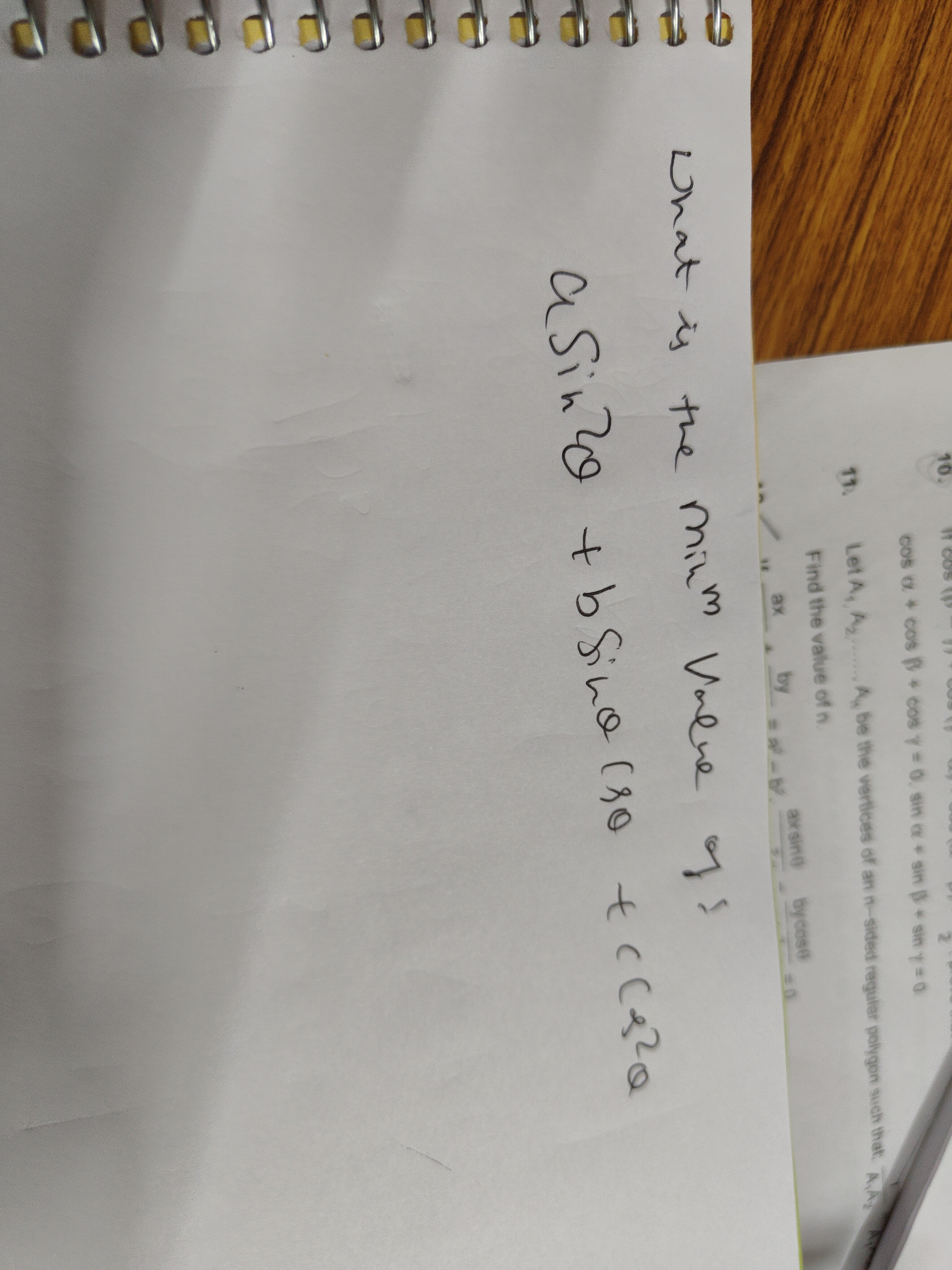Question
Question: What is the mium Value of? $a Sin 2\theta + b Sin\theta + c Cos2\theta$...
What is the mium Value of?
aSin2θ+bSinθ+cCos2θ

The minimum value depends on the values of a, b, and c.
Solution
To find the minimum value of the expression f(θ)=asin2θ+bsinθ+ccos2θ, we need to analyze its behavior. This is a general trigonometric function, and its minimum value will depend on the specific values of a,b, and c.
Let's rewrite the expression using standard trigonometric identities: sin2θ=2sinθcosθ cos2θ=1−2sin2θ
Substituting these into the expression: f(θ)=a(2sinθcosθ)+bsinθ+c(1−2sin2θ) f(θ)=2asinθcosθ+bsinθ+c−2csin2θ
This expression is a function of θ. To find its minimum value, we would typically use calculus by finding the derivative with respect to θ and setting it to zero.
f′(θ)=dθd(asin2θ+bsinθ+ccos2θ) f′(θ)=a(2cos2θ)+b(cosθ)+c(−2sin2θ) f′(θ)=2acos2θ+bcosθ−2csin2θ
Setting f′(θ)=0: 2acos2θ+bcosθ−2csin2θ=0
This is a transcendental equation, which is generally difficult to solve for θ in terms of a,b,c. The solutions for θ would then need to be substituted back into f(θ) to find the minimum value.
General Case: Since a,b,c are arbitrary constants, the minimum value of the expression cannot be a single numerical value or a simple algebraic expression independent of a,b,c. The minimum value will be an expression that depends on a,b,c.
For example:
- If a=1,b=0,c=0, the expression is sin2θ. The minimum value is −1.
- If a=0,b=1,c=0, the expression is sinθ. The minimum value is −1.
- If a=0,b=0,c=1, the expression is cos2θ. The minimum value is −1.
- If a=0,b=0,c=0, the expression is 0. The minimum value is 0.
As seen from these examples, the minimum value changes with a,b,c.
Conclusion: Without specific values for a,b,c or additional constraints, it is not possible to provide a single numerical minimum value. The minimum value of the expression asin2θ+bsinθ+ccos2θ is a function of a,b,c.
The question "What is the mium Value of?" seems to have a typo, likely meaning "minimum value". Given the general form of the question without any options, the problem is asking for the minimum value in terms of a,b,c. However, there's no general closed-form expression for the minimum value of such a function that is simpler than the function itself without solving the derivative equation.
If this question appeared in a multiple-choice setting for JEE/NEET, it would either provide specific values for a,b,c, or the options would be general expressions involving a,b,c, or there might be a specific context (e.g., related to a quadratic equation in sinθ or cosθ under certain conditions). As it stands, it's a function whose minimum depends on the parameters.
The problem, as stated, is open-ended. It cannot be simplified to a single numerical value or a simple algebraic expression without specific values for a,b,c.
